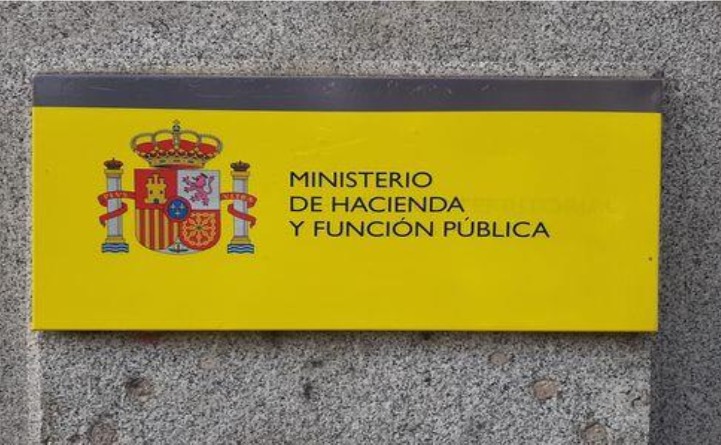A judgment from the High Court dated June 8th has delivered justice, providing necessary legal certainty by correcting a practice of the tax administration in tax inspection concerning the conversion of an anti-abuse clause into an abusive one: the exemption from withholding tax in the payment of dividends by a company resident in Spain to its parent company in another EU Member State, as provided for in Article 14.1.h) of the Non-Resident Income Tax Law (NRITL).
The said provision stems from the implementation of Directive 90/435, known as the “Parent-Subsidiary Directive,” aimed at preventing the non-harmonized treatment of relations between a parent company and its subsidiary – both resident in the EU – from disturbing the proper functioning of the internal market and the principle of free competition.
To this end, the Directive provides that, since dividends are profits that have already been taxed, they must be able to flow without fiscal cost – via withholding tax – in the country of the source of the distribution – that of the subsidiary – and be received without fiscal cost, in the country of residence of the parent company.
The mentioned Directive allows Member States to use an anti-abuse clause, and Spain opted for it by denying the exemption when, despite meeting the objective requirements, the majority of the voting rights of the EU-resident company directly owning the Spanish subsidiary were held directly or indirectly by individuals or legal entities not resident in EU Member States or the European Economic Area.
In the original wording, the mentioned anti-abuse clause ceased to apply if any of the following situations occurred: (i) when the parent company actually carried out a business activity directly related to the business activity of the Spanish subsidiary; (ii) when the parent company’s purpose was to direct and manage the subsidiary company through the proper organization of material and human resources, or (iii) when it was proven that the parent company had been established for valid economic reasons and not to unduly enjoy the exemption in the withholding tax on dividend distribution by the Spanish subsidiary. This was the wording applicable when the dividend subject to this litigation was distributed, and, after ruling out cases (i) and (ii), the issue was whether case (iii) applied.
Subsequently – and taking a break in the case under analysis to review chronologically the erratic legislative evolution of this exemption -, the taxpayer’s life began to get complicated, reducing legal certainty to this anti-abuse clause. Thus, Law 26/2014 of November 27, amending the Personal Income Tax Law and the NRITL, eliminated the 3 alternative circumstances – which were not cumulative – that allowed avoiding the application of the mentioned anti-abuse clause – and consequently applying the mentioned exemption from withholding tax – and imposed as the only possible case to deactivate said anti-abuse clause the following wording: “except when the establishment and operation thereof (referring to the parent company) respond to valid economic reasons and substantive business reasons.”
Beyond the fact that analogy is not allowed in tax law and that the concept of “valid economic reasons” has been broadly interpreted in relation to the application of the special tax regime for corporate reorganizations benefiting from tax neutrality and tax deferral, but not in the application of the exemptions referred to in Article 14 of the NRITL, there must be business reasons – as if economic reasons lacked business reasons – and furthermore, these must be “substantive,” so we enter the murky world of indeterminate legal terms, which only lead to further tax disputes.
But the real abuse towards the taxpayer is that the tax administration – in tax inspection – has systematically applied the mentioned anti-abuse clause when the majority of the voting rights of the direct parent company of the Spanish subsidiary are held by non-residents of the EU or the European Economic Area (“EEA”), as if the establishment of any parent company – in the mentioned context – was always due to invalid economic reasons or for reasons that, despite being business-related, were not substantive!
Well, returning to the case under analysis, the Supreme Court has put an end to the abusive use of the anti-abuse clause by the tax administration and, confirming the opinion of the National Court – which previously corrected the criterion of the Central Administrative Court of Appeal, which curiously sided with the tax administration by denying the exemption from withholding tax on dividend distribution under the pretext of applying the anti-abuse clause – has held that the burden of proof lies with the tax administration, which cannot assume an unfounded, arbitrary, and unjust presumption of exclusively fiscal purpose in every case where a European parent company, whose voting rights are mostly held by non-residents neither in the EU nor in the EEA, receives a dividend from a Spanish subsidiary.
And the High Court bases its conclusion on multiple arguments, among which I would highlight the fact that the wording – as then applicable – allowing the avoidance of the anti-abuse clause explicitly referred to “proving” that the parent company had been established for valid economic reasons and not to unduly enjoy the exemption from withholding tax on the distribution of dividends by the Spanish subsidiary, which the taxpayer demonstrated by providing a certificate of tax residence of the Luxembourgish parent entity controlled by a Canadian public law corporation, while the tax administration did not prove otherwise.
Those who wish to assert their rights bear the burden of proof. No to arbitrariness.







